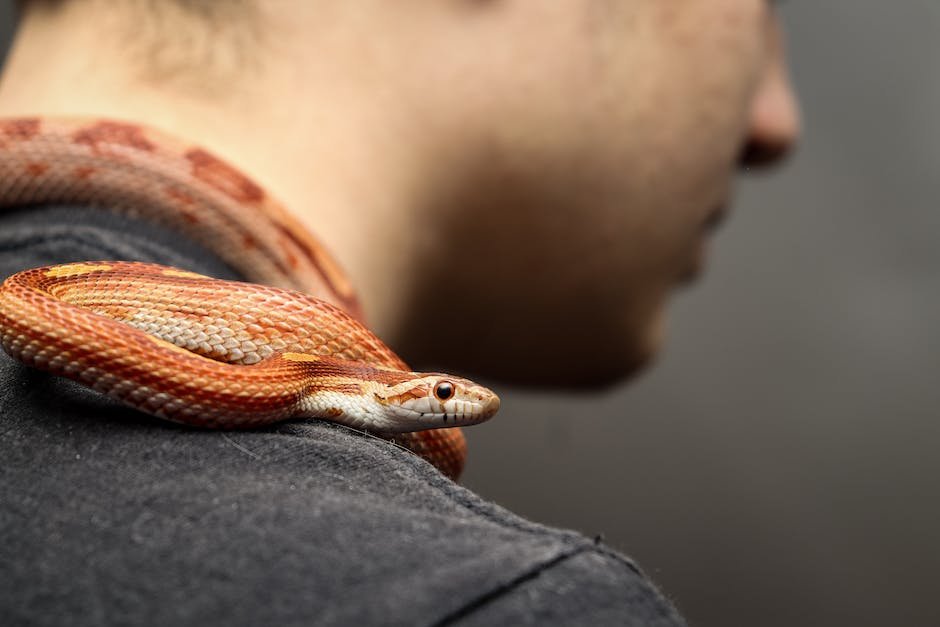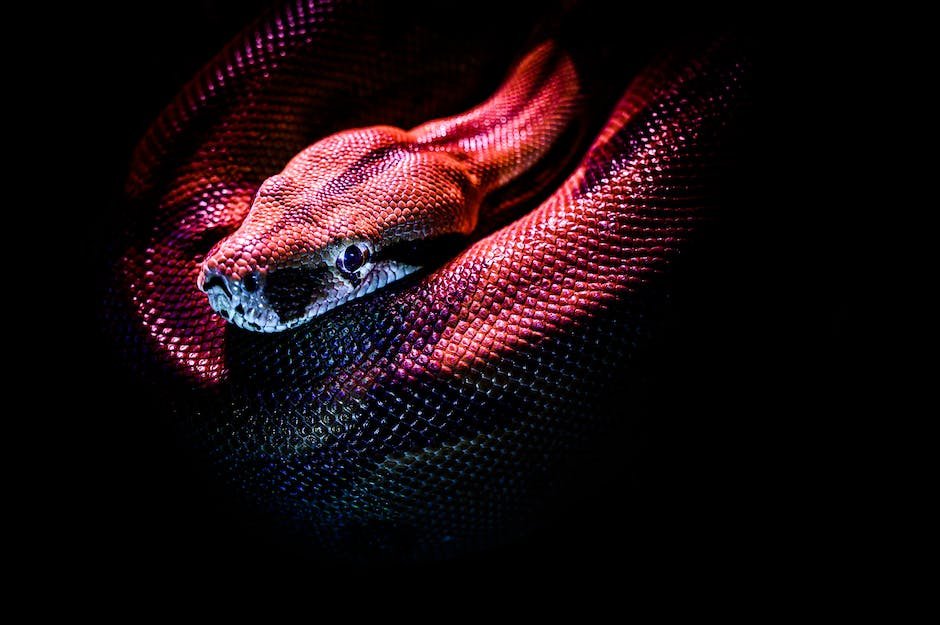Contents
The Albino Corn Snake is a beautiful creature that’s becoming increasingly popular as a pet. As its name suggests, this snake is albino, meaning it lacks pigment in its skin, making it appear white or pale yellow. Thismorph is caused by a rare genetic mutation, and as a result, Albino Corn Snakes are quite rare and can be expensive. Despite their rarity, Albino Corn Snakes are just as friendly and docile as their non-albino counterparts, and make great pets for those who are looking for something a little different.
Albinism is a genetic condition that results in the complete or partial absence of pigment in the skin, hair, and eyes. Albino corn snakes are snakes that have this condition. They are typically pale pink or orange in color, and they have white or pale yellow scales. Albino corn snakes are not always easy to care for, and they can be more susceptible to health problems than other corn snakes.
What is the difference of albino and amelanistic?
A true albino bird cannot produce melanin at all, while a partially amelanistic bird can produce melanin but it is not being deposited in certain locations. This can manifest as white feathers or pink skin.
Albino corn snakes are a color morph of corn snakes with all the dark colors missing. The first genetic color mutation discovered in corn snakes was albinism or amelanism. Dr Bernard Bechtel first produced an amelanistic corn snake in 1961.
What does Amel mean in snakes
Amelanistic refers to a snake with a total absence of melanin. This is the result of a single recessive mutation and is caused by a gene mutation with the same name. This mutation is relatively rare, but can be found in a variety of snake species.
While the albino corn snake is a morph itself, there are a few varieties with differential markings like the creamsicle and reverse okeetee morph. Within the albino morph, there are a variety of markings which produce different looking snakes including the okeetee, tessera, motley, and striped varieties. All of these varieties are beautiful in their own way and make great pets!
What causes Amelanism?
Amelanism is a pigmentation abnormality characterized by the lack of melanins, which are pigments that give color to the skin, hair, and eyes. It is caused by a genetic mutation that leads to the loss of function of the enzyme tyrosinase, which is responsible for the production of melanin. Amelanism can be inherited in an autosomal recessive or autosomal dominant manner. It is more common in certain breeds of dogs, cats, and horses.
Albinism is a congenital disorder characterized by the complete or partial absence of pigment in the skin, hair and eyes. Albinism is caused by an inherited mutation in one of several genes.
There are four main types of albinism: oculocutaneous albinism (OCA), ocular albinism, Hermansky-Pudlak syndrome and Chediak-Higashi syndrome.
OCA is the most common type of albinism, affecting both the skin and the eyes. Ocular albinism only affects the eyes. Hermansky-Pudlak syndrome is a rare form of albinism that is associated with bleeding disorders and vision problems. Chediak-Higashi syndrome is a very rare form of albinism that is associated with immunodeficiency and neurological problems.
People with albinism typically have very fair skin and light-colored hair. They are also at increased risk for skin cancer and vision problems. There is no cure for albinism, but treatments are available to improve vision and protect the skin from the sun.
What is the difference between amelanistic and Hypomelanistic corn snakes?
If you’re looking for darker snakes, you should consider a hypomelanism morph. Hypomelanism is the reduction of melanin, and hypomelanistic snakes appear like traditional corn snakes; only there is dark red or white where black pigment usually is.
Corn snakes are not venomous, so their bites are not dangerous. They might cause some mild pain and minor bleeding, but nothing serious. If you are bitten by a corn snake, wash the wound with soap and water and apply a bandage.
What is the most rare color corn snake
The Scaleless corn morph is the most unique pattern morph. They are rarer than the Sunkissed Corn Snake (#14). This $500 snake is very rare to see. They are a hybrid snake bred from a Great Plains Rat Snake and common corn snake.
Amelanism is a very interesting condition that can occur in a variety of animals. Despite the lack of melanin pigments, animals with amelanism can still have red or yellow spots due to chromatophores that produce non-melanin pigments. It is also fascinating to note that amelanism can occur in humans as albinism (particularly the oculocutaneous type). This just goes to show that there is still a lot we don’t know about this condition and its effects on the animal kingdom.
What does Amel mean in reptiles?
Assuming you want a definition for each:
Amelanistic animals lack melanin, or black pigment.
Anerythristic animals lack red pigment.
Corn snakes are relatively easy to care for when it comes to feeding. They should be fed 1 frozen/thawed mouse every 7-14 days, depending on the size of the corn snake. A large bowl of tap water should be present in their enclosure and will need to be replaced every day. Corn snakes are very easy to feed and almost never refuse a meal.
What is the rarest albino snake
This is an amazing discovery! An albino Western Diamondback rattlesnake was found at a Hill Country ranch. Albinos born in the wild are rare and are at a great disadvantage as they are easily spotted by predators. But this lucky snake was found by a caring owner who will make sure it is well-cared for.
There are a variety of corn snake morphs that are popular among snake enthusiasts. Some of the most popular corn snake morphs include the striped corn snake, snow tessera corn snake, topaz motley corn snake, blue striped corn snake, and sunkissed ultramel corn snake. Each of these morphs has its own unique colouration and patterning that makes it stand out from the rest. Whether you’re looking for a snake that is colourful and eye-catching, or one that is more subdued in colour, there is sure to be a corn snake morph that is perfect for you.
Are albino Cornsnakes rare?
Albino snakes are very rarely found in the wild. They are so easy to spot that they are often preyed upon before they reach maturity. This is also true for many other species of albino animals. They are already rare to begin with and are often much more vulnerable than their non-albino counterparts.
An individual with albinism is unable to produce melanin, the pigment that gives colour to the skin, hair and eyes. This can be a good diagnostic feature to distinguish between leucism and albinism – albinos will have pink eyes, while leucistic individuals will have dark irises. However, it is important to note that not all albinos will have pink eyes, and some leucistic individuals may have light-coloured eyes.
What is the difference between leucistic and Hypomelanistic
Hypomelanism is a genetic mutation that causes a partial lack of melanin. A hypomelanistic bird will be paler than normal where melanin is expressed in the plumage. Leucism is not a genetic mutation, but rather describes defects in pigment cells that are caused during development.
In order to further limit the amount of melanin your skin produces, it is important to not only limit your sun exposure but also to stay indoors during the hours of 10 am to 2 pm when the sun’s rays are strongest. Wearing sunscreen and protective clothing is also key in reducing sun exposure.
What are 3 symptoms of albinism
Albinism is a disorder that is characterized by the complete or partial absence of pigment in the skin, hair and eyes. People with albinism may have very light skin, white hair and pink eyes. They may also be verysensitive to sunlight and have vision problems.
Albinism is a term used to describe a group of inherited disorders that are characterized by the complete or partial absence of melanin pigment in the skin, hair and eyes. Melanin is responsible for producing the characteristic dark coloration of these features. The symptoms of albinism can range from very mild to severe and can affect both males and females. Some of the more common symptoms include: pale skin, hair that is very light blonde, brown, or red, eyes that are pink, light blue, green, gray, or light brown, eyes that are sensitive to light, a “lazy eye” (called strabismus), back and forth movement of the eyes (called nystagmus), and vision problems. There is no cure for albinism, but the symptoms can be managed with the use of sunscreen, sunglasses, and other measures.
Do albinos have health problems
Albinism is a condition in which a person lacks the pigment melanin in their skin, hair and eyes. This can cause them to have very pale skin, hair and eyes and be prone to sunburn and skin cancer. Albinism can also affect a person’s vision as the melanin is involved in optical nerve development. Albinism can affect people of all races and all ethnic groups.
The average length of a human penis is six inches, with a range from four to seven inches being considered “normal.” The average length of a female’s vagina is three to four inches.
Conclusion
The albino corn snake is a popular variation of the corn snake that is characterized by its lack of pigment, resulting in an all-white or pale yellow appearance. This morph is created through selective breeding of corn snakes with mutations that prevent the production of melanin, the substance that gives corn snakes their characteristic coloration. While albino corn snakes are typically healthy and long-lived, they are particularly susceptible to skin damage and eye problems due to their lack of melanin.
The Albino (Amelanistic) Corn Snake is a beautiful, white colored snake that is popular among snake enthusiasts. They are docile snakes that make great pets, and are relatively easy to care for. Albino Corn Snakes are also one of the most affordable snakes to purchase, making them a great option for those looking to get into the reptile hobby.

0 Comments